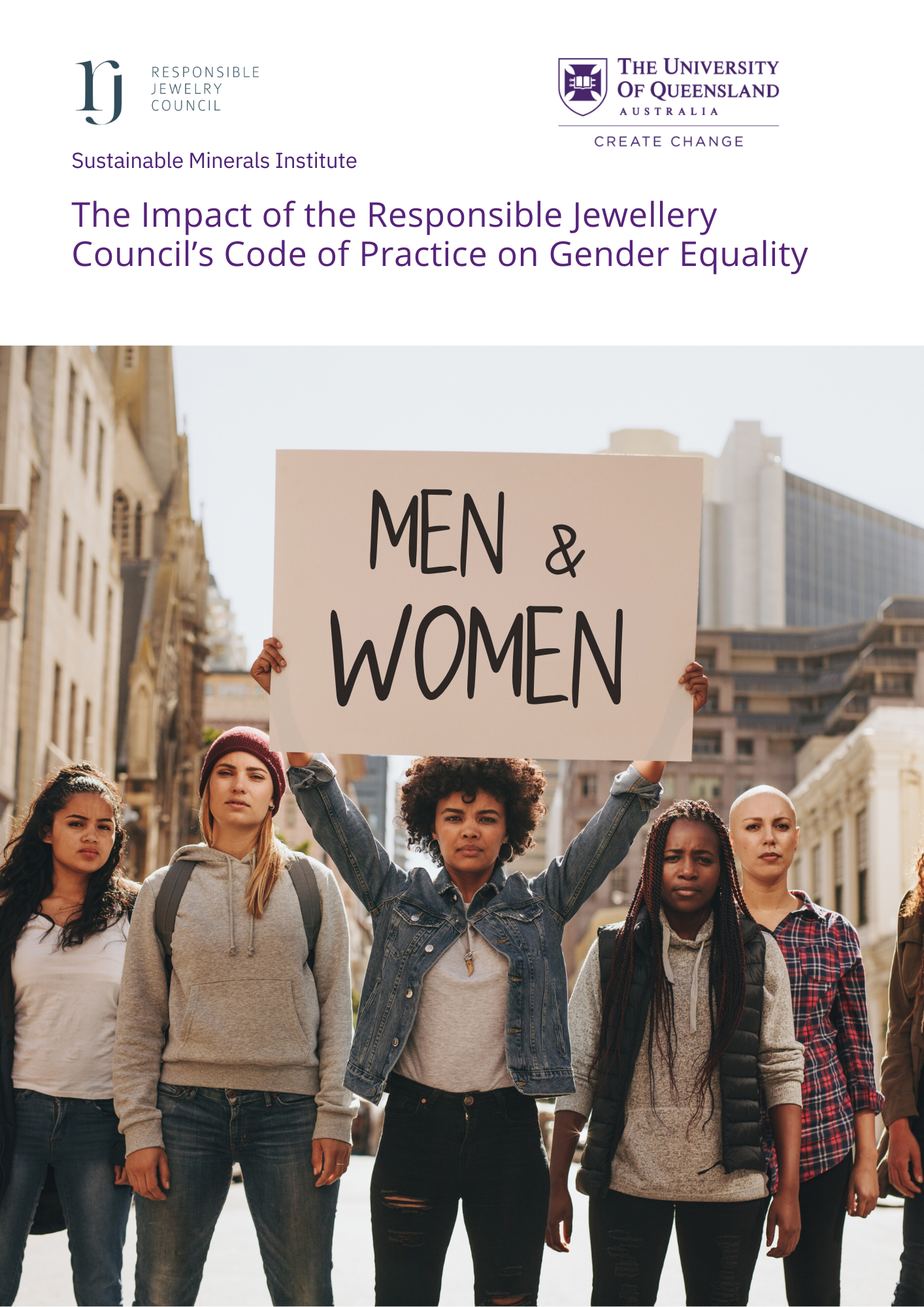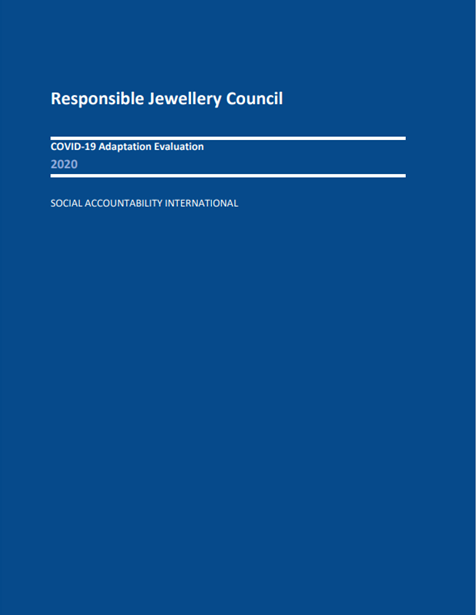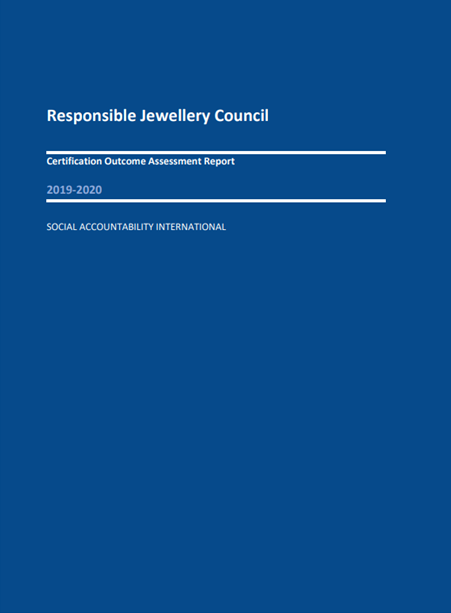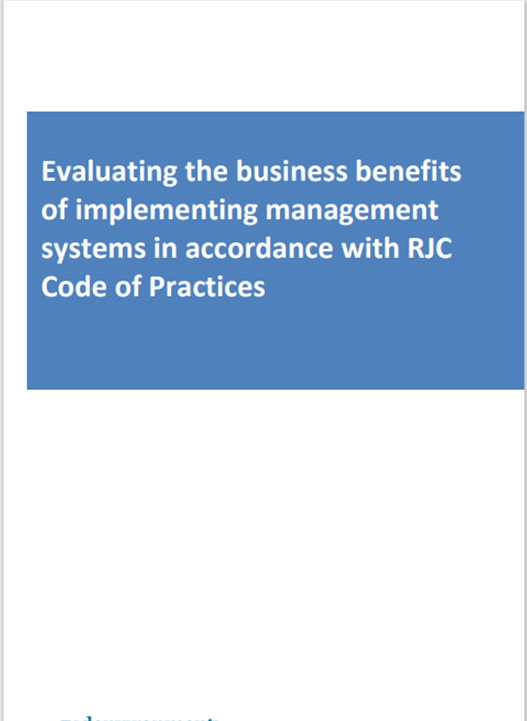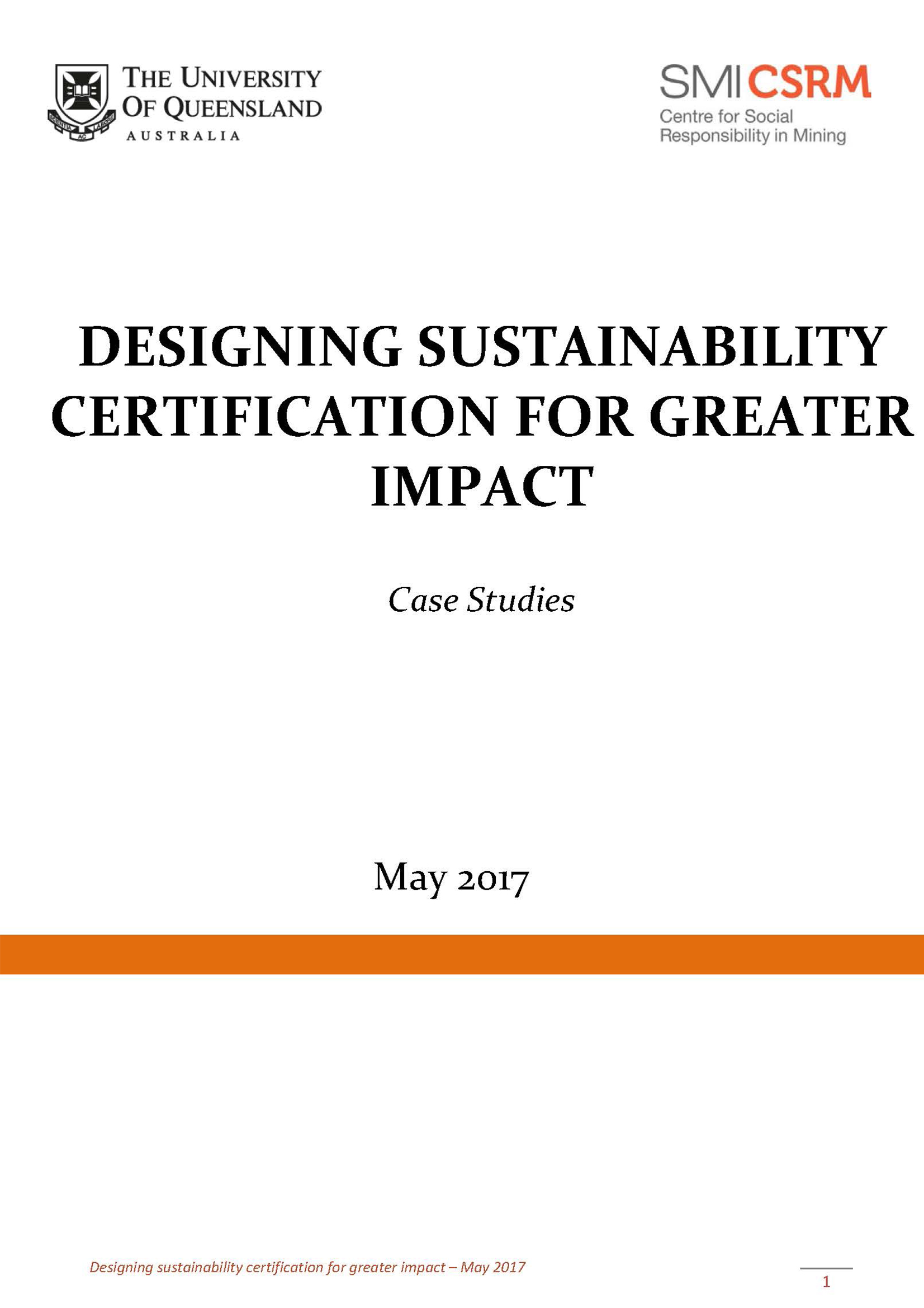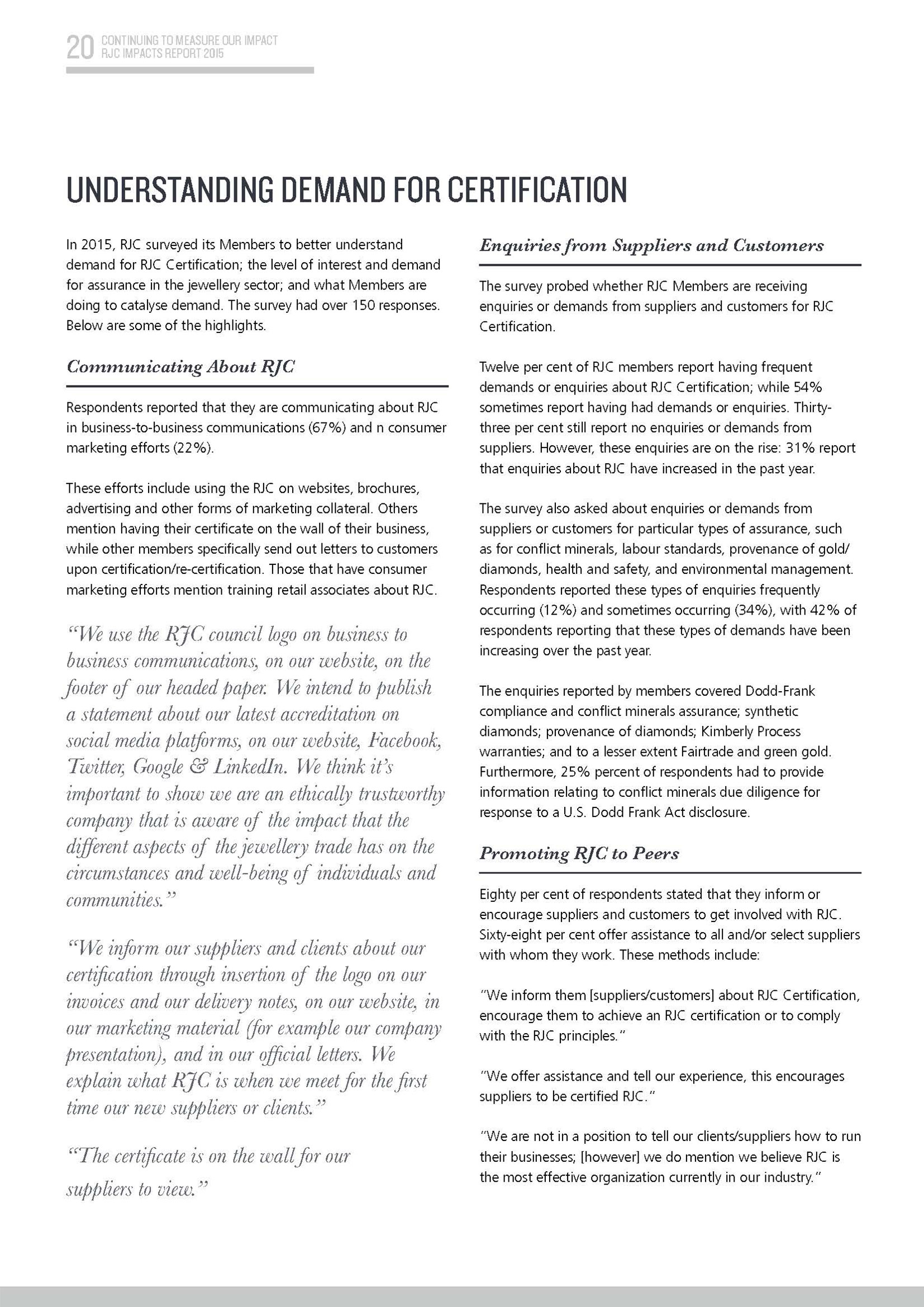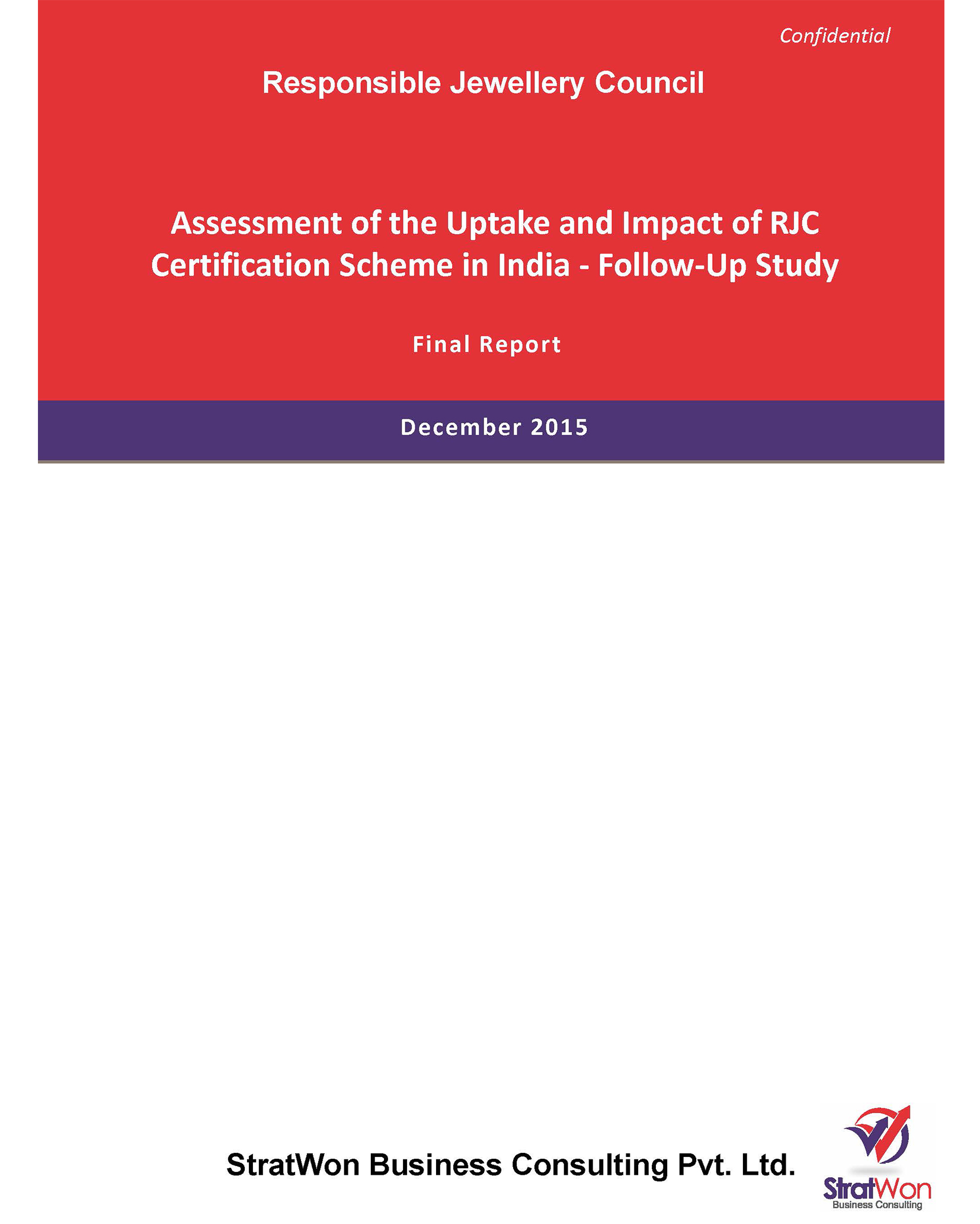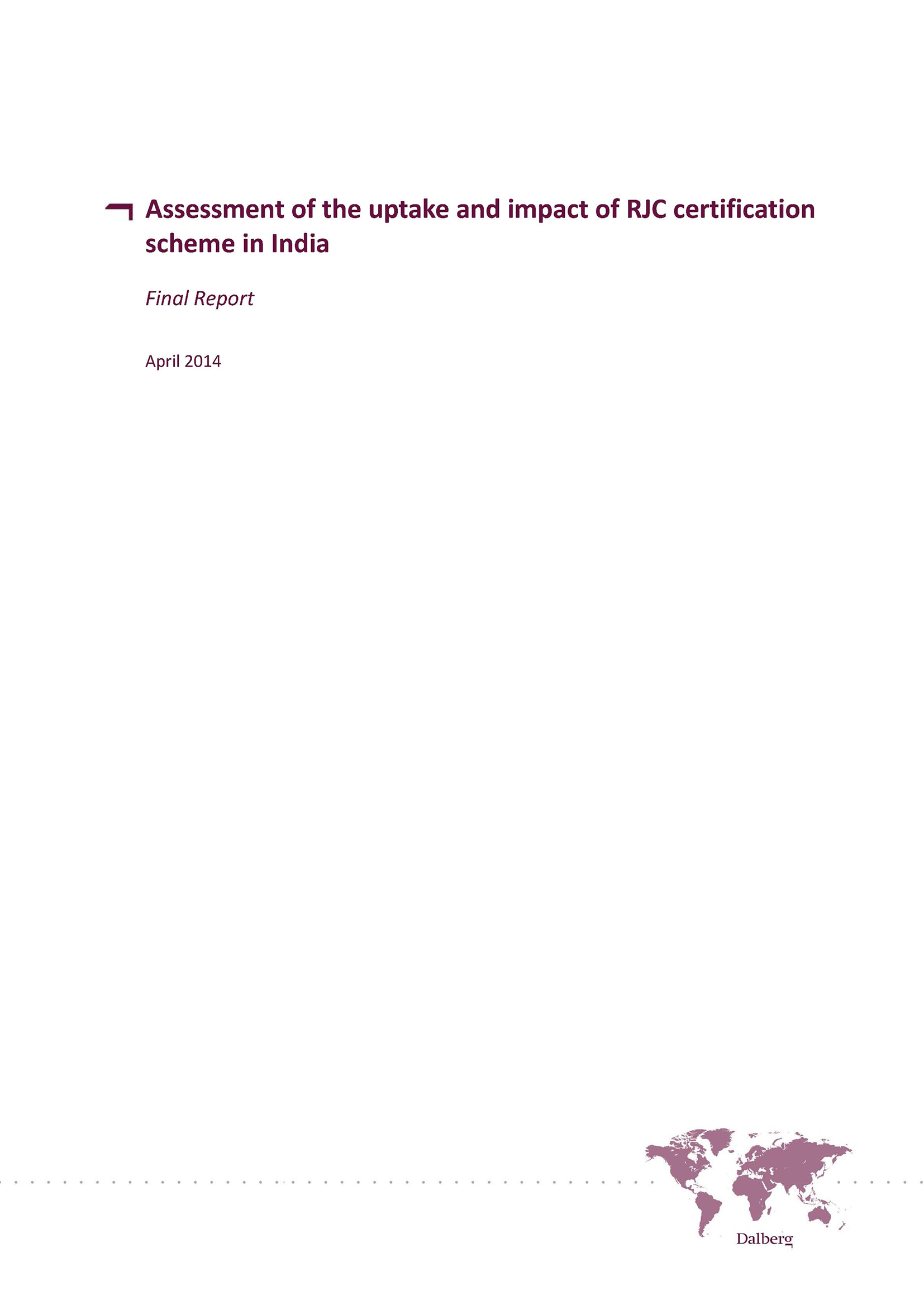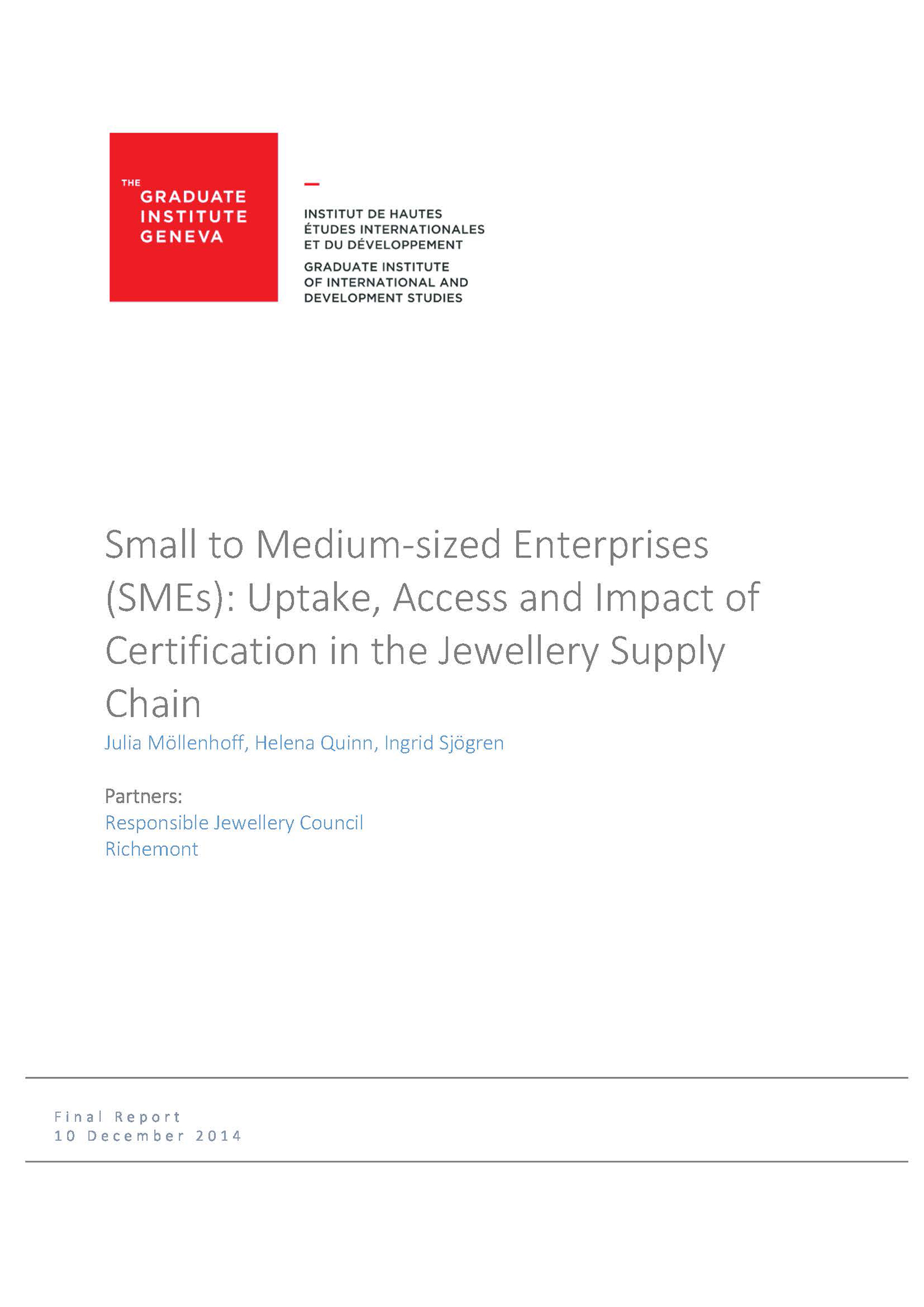previous research For full transparency of results, we commit to publishing the full evaluation report once the research project has concluded
Browse our previous research projects:
This report, prepared in collaboration with the Responsible Jewellery Council (RJC) and by the Carbon Trust with ISEAL funding, is a strategic guide to help companies at all stages of their climate journey, particularly small and medium-sized enterprises (SMEs), which make up a large portion of our industry and often face the steepest challenges.
Download Report >> Click Here
We remain, committed to the UN Sustainable Development Goals (SDGs) and in particular SDG 5 – the empowerment of women and girls.
For our 2023 research project, we partnered with the Sustainable Minerals Institute at the University of Queensland, to investigate the outcome of the 2019 Code of Practices, and our additional activities on gender equality, on improving gender equity across our membership.
SAI were commissioned to conduct an evaluation of RJC’s member companies in and around India’s gem and jewellery hubs, Mumbai and Surat. SAI examined the outcomes of a company’s involvement in the RJC certification process on labour rights and working conditions in their business. The evaluation consisted of three phases. Phase one was the distribution of a digital survey to members assessing the outcome of RJC certification on each company’s policies and procedures, worker comprehension of these, and level of compliance. Phase 2 consisted of observations at 23 member sites to validate and contextualise the information gathered through the survey, through interviews with management and workers, facility walkthroughs, and review of factory documents. For the third phase, SAI conducted telephone interviews with a sample of 10 members to gain additional context and a deeper understanding of the answers provided in the survey.
Building on a collaborative project with ISEAL in 2017, to develop a robust research methodology to evaluate the business benefits of certification, RJC commissioned AidEnvironment to apply the methodology for this year’s research project. Specifically, the study explored the business benefits which RJC member companies in the jewellery supply chain derive from implementing management systems in accordance with RJC’s Code of Practices (COP). The study focused on manufacturing and wholesale companies. RJC’s management response to the findings and the recommendations of the research are contained in section 4.3 of the report.
RJC recently participated in a collaborative project funded by ISEAL, to develop a robust and cost-effective research design and methodology for conducting an evaluation to evaluate the business benefits of RJC certification for members. In the second half of 2017, RJC aims to pilot the methodology, focusing the evaluation on the jewellery wholesalers and manufacturing forum, where we have the greatest concentration of members and where membership is primarily driven by business partners. RJC endeavours to make public the outcomes of its in-depth evaluation, by publishing either the full or summary reports.
Artisanal and small scale mining (ASM) organisations are a critical part of the jewellery supply chain, both in terms of livelihood and development opportunities, as well as the need to manage key risks. In 2016, RJC certified member Minera Yanaquihua S.A.C. based in Peru, was subject to an evaluation on the impact of RJC certification by the Centre for Social Responsibility in Mining (CSRM) at The University of Queensland. A site visit was undertaken be the researchers in 2015 to collect primary data (documents and observations) and to conduct face-to-face interviews and meetings with stakeholders internal and external to the member. The full report can be downloaded here. Key findings:
- RJC’s requirements to implement programs to improve practices and reduce social and environmental risks on ASM are important to improve the work conditions and human rights of local artisanal miners and to minimise the environmental impacts of these artisanal miners.
- RJC’s requirements to participate in initiatives that enable the professionalism and formalisation of ASM have a positive impact not only on the formalisation of these artisanal miners but on their livelihoods, practices and productivity.
- RJC’s requirements to support the development of the local community through backing community initiatives such as local procurement had a positive impact delivering economic and social improvements.
- Women empowerment is a positive side effect of the livelihood improvements obtained through the company’s approach to engage and work with women artisanal miners and the initiatives to foster local development.
This evaluation has been running in tandem with another independent evaluation of Minera Yanaquihua S.A.C., being led by Solidaridad to measure the impacts from RJC Certification at the company, as well as (ASM) miners on the concession. In 2015, Solidaridad and RJC contracted Avance, a Dutch-based consultancy specialised in evaluations, to perform a retroactive baseline and midterm evaluation of progress, with the results available in 2017. Some of the initial member benefits of the certification journey so far were reported in the 2015 Impacts Report.
The diamond cutting and polishing sector in India is key to the jewellery supply chain, as 9 out of 10 of the world’s diamonds are cut and polished there. In recognition of this important sector, RJC commissioned Dalberg Global Development Advisors to conduct an independent impact evaluation in 2014 to look at the uptake and impact of the RJC Certification scheme in the diamond cutting and polishing sector in India. The assessment highlights that RJC’s standards are strongly aligned to key risks, and is helping to instil and highlight best practices.
A follow up study in India was commissioned by RJC in 2015.
An in-house RJC member survey was conducted by the RJC management in 2015 to better understand the level of interest and demand for RJC certification in the industry and what members are doing to stimulate further uptake in the industry. The results were reported in the 2015 Impacts Report.
RJC has been developing a member toolkit of marketing and promotional collateral, to support members in communicating with the industry and their business partners about their RJC certification, to stimulate further demand for RJC certification. This will be launched at the 2018 AGM in Moscow.


